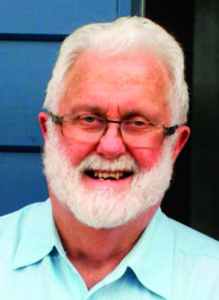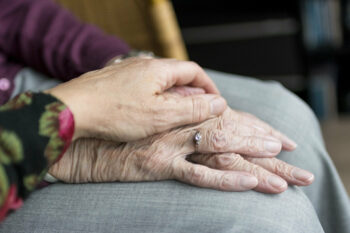The Right to Live

By Fr Kevin Bates SM
 ‘A Current Affair’ ran a poignant piece telling the story of Gabe Watkin, a Queensland, Australia woman suffering the effects of motor neurone disease. She had been pleading with Queensland Health for access to a surgical procedure that will likely extend her life. At the time of the broadcast, Queensland Health’s Ethics Committee had kept Gabe and her family waiting twelve months before declining her access to the tracheotomy she was seeking. All Gabe wanted, as she said herself, was the right to live.
‘A Current Affair’ ran a poignant piece telling the story of Gabe Watkin, a Queensland, Australia woman suffering the effects of motor neurone disease. She had been pleading with Queensland Health for access to a surgical procedure that will likely extend her life. At the time of the broadcast, Queensland Health’s Ethics Committee had kept Gabe and her family waiting twelve months before declining her access to the tracheotomy she was seeking. All Gabe wanted, as she said herself, was the right to live.
At the time the Queensland Government was considering introducing Right to Die legislation, as was the NSW Parliament. Both states have now passed these into law (as has New Zealand - Ed).
Euthanasia, (Voluntary Assisted Dying) is a subject that raises ethical and moral questions along with much heated emotion. Its supporters, often acting out of compassion for people who are so ill that life seems to hold nothing for them anymore, argue that people should have the right to decide how and when they die.
Along with the understandable heated emotion, clear thinking around this issue is terribly important, something that is often hard to come by around such issues.
Many will argue on practical humanitarian grounds alone, that the quality of palliative care now available to dying and critically ill patients is such that there is no need for us to legalise euthanasia. A visit to any palliative care ward will confirm this impression. There is always a gentle lightness of touch on the part of doctors, nurses and staff and even a certain joy in the way they accompany a dying person’s final journey.
They are able to provide whatever it is that is needed to make the patient comfortable and minister to the patient with great tenderness. Nature is allowed to take its course and unnecessary measures to keep a person alive or to be resuscitated need not be taken.
This is a very different decision from the one to end one’s own life. Letting go is very different from taking away.
A crucial component in any debate for people of faith is the place of God in all this. If we leave God out of the debate, then the way is more easily cleared to support euthanasia and its accompanying legislation.
If we allow God into the discussion the ground shifts. The gift of life that God entrusts to us comes with a tag that says “Not to be taken away.” The Catholic Church clearly opposes the practice of euthanasia understanding that we do not have the right to take our own life.
Even in my time of suffering and dying, I am still a person made in God’s image and have the capacity to speak through my weakness of God’s saving love. The dying Christ on the Cross speaks of this for us. In his dying, Jesus becomes a gift of life for the world, modelling for us the pattern for our own dying.
We are never useless and of no value no matter how disabled and ill we become. Love can be our gift to each other right to our last breath. Memories surface, stories are told and love is refreshed around our death-bed.
Without the context of faith, we can understand the compassion and concern for loved ones that prompts people to argue for euthanasia to be legalised. With the eyes of faith we have another starting and ending point as we place God and not ourselves at the centre of our considerations. We do this not mindlessly or without making use of medical assistance. We trust that our gift of life will find its own time and place to end.
Allowing God into the conversation, we pause as we reflect on the decisions facing us.
May we have thoughtful, faith-filled and wise discussions with each other as Right to Die legislation comes into law.
 Entries(RSS)
Entries(RSS)